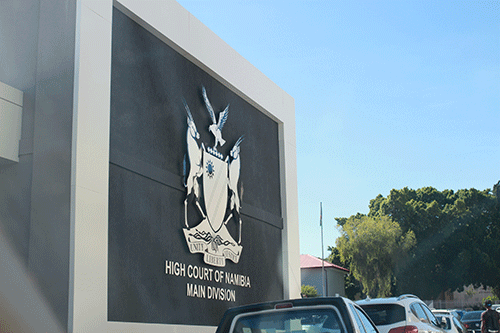The recent pronouncement by the High Court that it is irrational to forfeit property not connected to crime but mixed with actual proceeds of crime, will give leeway to criminals to hide their criminal proceeds, and is being challenged.
Those opposing the ruling are the prosecutor general (PG), justice minister, attorney general, director of the Anti-Corruption Commission of Namibia and the finance minister in their petition to the Supreme Court.
The government entities are appealing against the recent judgement by the High Court’s full bench of judges, which declared part of the definition of “proceeds of unlawful activities”, whose phrases “… includes property which is mingled with a property that is proceeds of unlawful activity”, as unconstitutional.
The definition is contained in section one of the Prevention of Organised Crime Act 29 of 2004 (POCA).
In their ruling, judges Tomas Masuku, Herman Oosthuizen and Hannelie Prinsloo agreed that the definition of proceeds of unlawful activities as contained in POCA does not comply with Article 22 of the Constitution.
They said the impugned part of the definition of proceeds of unlawful activities is illogical, and deprives owners of lawfully-acquired property of their rights to that property without providing sufficient reasons. Furthermore, it amounts to punishment to preserve or eventually forfeit millions of ‘clean’ money because of tainted, perceived or real money that was mixed with untainted millions.
However, the PG and fellow government entities claim the judges erred in their ruling.
Their argument is that lawfully-gained property, mingled with unlawful proceeds of crime, is already protected under section 63 of POCA. The High Court also failed to appreciate that the right to property is not absolute, and is inherently limited to public interest considerations.
Thus, there was no need to declare parts of the definition unconstitutional.
They claim that striking that particular part of the definition out has far-reaching consequences.
“… every criminal will be able to insulate any money that is the proceeds of criminal activity from the preservation or forfeiture under Chapter 6 of POCA by mingling it with ‘clean’ money, no matter how small the amount of the ‘clean’ money,” said the appellants.
The High Court’s order of 11 August is a result of a constitutional suit filed in October 2020 by Martin Shilengudwa and his wife, Hilma Shilengudwa. The Shilengudwas’ challenge of the law came after a preservation order was granted against their accounts when they sold a property to the Business and Intellectual Property Authority (Bipa) for N$18 million in 2017.
The property is located on a piece of land measuring 1 214 square metres along Shire Street in Wanaheda, Katutura, and was being used by the couple as a restaurant, bar, gambling house, event facility and car wash. The sale of the property became controversial as it was sold for N$18 million, which is significantly above its value of N$4.6 million.
Due to that, the government took the couple and Bipa’s former CEO Tileinge Andima to court, claiming a refund of N$18 million; the cancellation of the deed of sale and sale transaction; and a refund of N$2 million in transfer fees.
In their suit, the couple argued that the wide definition of “proceeds of unlawful activity” has a crippling effect on properties lawfully attained.
However, PG Martha Imalwa argued the preservation order was needed, as there was reason to believe that the couple’s money was attained through unlawful means.
She said there was reason to believe that fraud was committed when four property evaluators concluded that the property’s value was between N$4 million and N$4.8 million, and not the value it was sold for.
Furthermore, Andima apparently failed to follow procedures as set out in the Public Procurement Act when he purchased the property from the couple.
-mamakali@nepc.com.na
Caption: Constitutional challenge… The High Court’s declaration that parts of the definition of proceeds of unlawful activities are unconstitutional, is being appealed.
Photo: File


